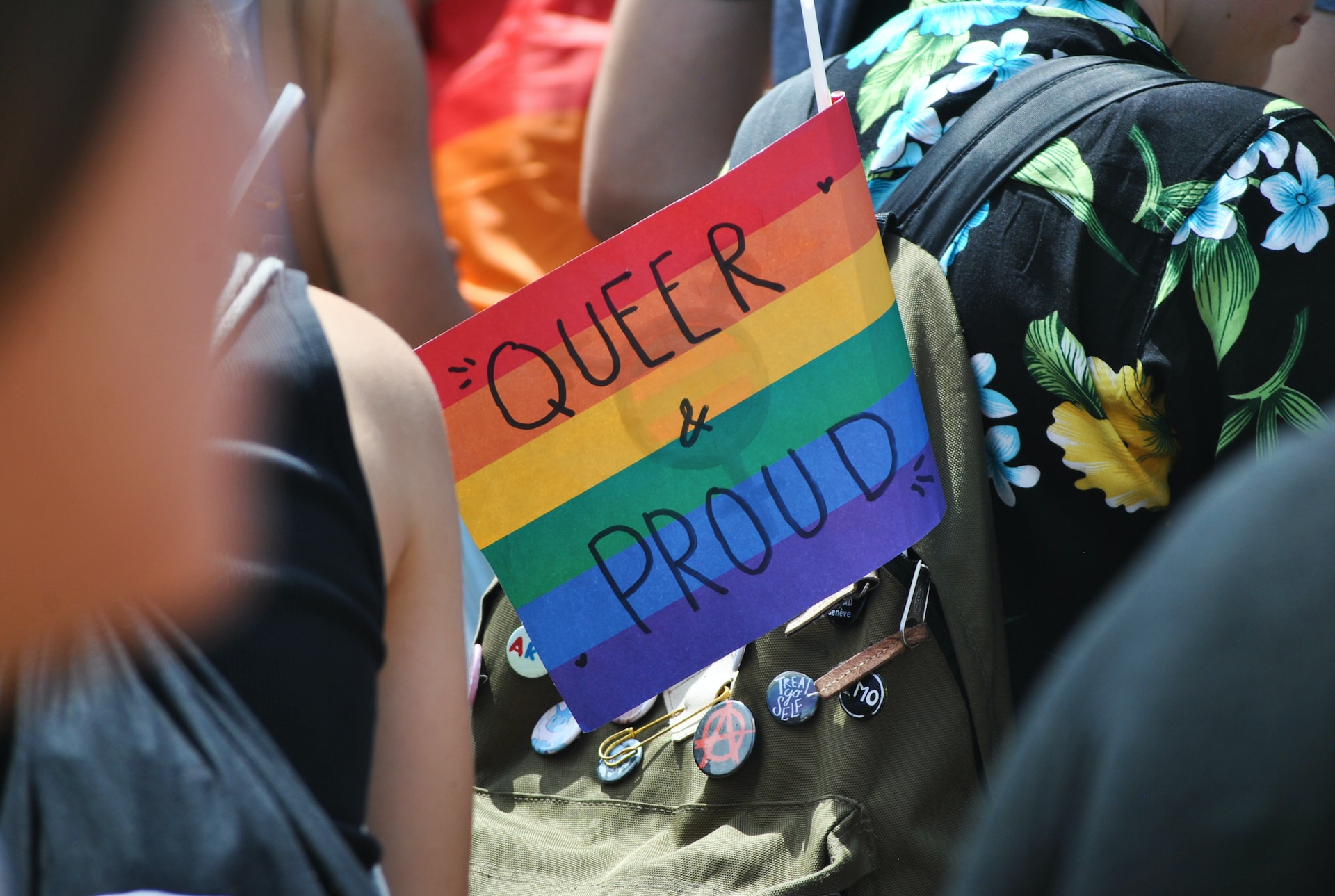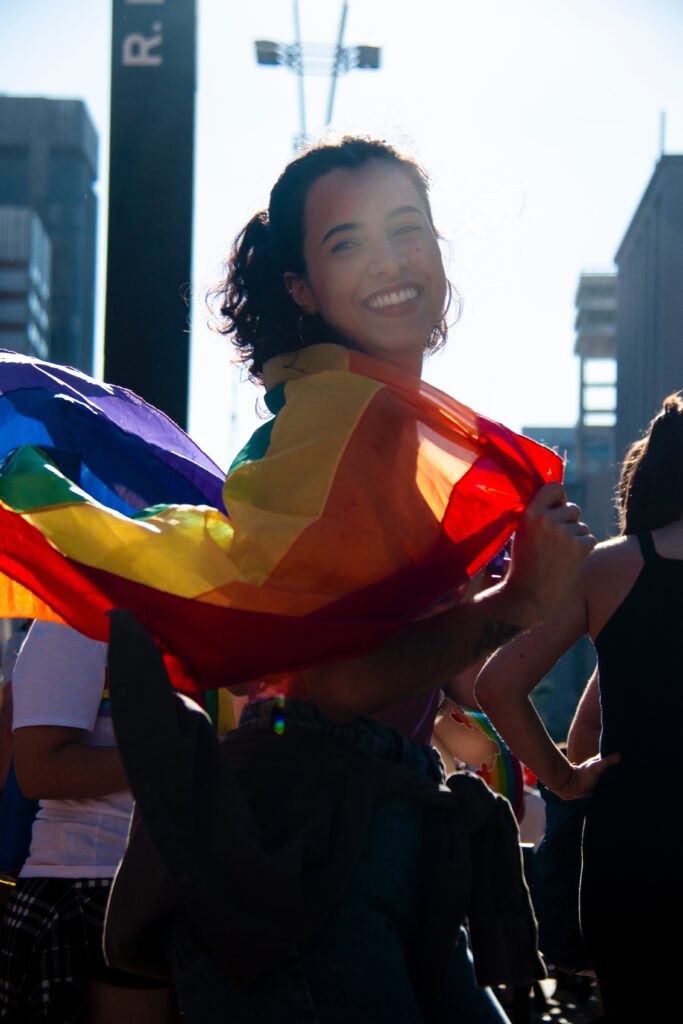Discover specialized resources tailored for LGBTQ+ teens. Dive into understanding challenges, garner practical tips for wellbeing, and get acquainted with crucial support avenues.

Hey, you. Yes, you, pausing to read this. Take a deep breath in. Now, exhale it out. Feel better? Great. We needed that moment too.
Now, let us take a minute and tell you how incredible we think you are for being here. Wanting to level up your mental health is a BIG deal. We see you, and we’re cheering you on in this journey.
We know being a teen is hard on its own. And if you identify as LGBTQ+? There are many additional stressors that can impact your mental health.
You know the saying about just the “tip of the iceberg?” It’s used to say that there’s a lot more beneath the surface than what’s immediately visible. The struggles, the worries, the stressors—what people see is often just a fraction of what’s really going on.
On the surface, people might see your strength, your style, your sense of humor. But underneath? There’s the authentic joy of being you but there might also be the weight of stigmas, the sting of unwanted opinions, or even the outright hurtful actions you endure. Maybe it’s bullying, family rejection, or the hurdles you face trying to access proper mental health care. We get it, and it’s all so valid.
If you sometimes feel like you’re floating out there alone, remember this: nearly 2 million U.S. teens, about 9.5%, identify as LGBT. You’re part of a vast, diverse, and beautiful community and you’ve got a whole community of supporters like us in your corner.

Let’s dive into some raw numbers that highlight just how crucial it is to prioritize your mental health, especially with the extra challenges you might be facing.
But before we do, let’s make one thing crystal clear: Being LGBTQ+? It’s not something you’ve done wrong. It’s a beautiful, core part of who you are. It’s not a mental health disorder or something to “fix,” regardless of what anyone says. It’s a piece of the brilliant mosaic that makes you, well, YOU.
The Trevor Project, a leading voice in suicide prevention for LGBTQ teens, reached out to 28,000 LGBT young folks like you, aged 13 to 24, from all over the US. To keep it real, the findings? They’re pretty heavy.
A staggering number of LGBTQ teens face severe mental health challenges and thoughts of self-harm. A significant chunk of this struggle is tied to experiencing anti-LGBTQ vibes and, in some cases, direct harm, according to their report.
• 41% seriously considered attempting suicide in the last year; half of transgender and nonbinary youth and 29% of cisgender youth said they felt this way.
• 67% reported recent anxiety signs, and 54% indicated depression symptoms. What’s even more concerning? 56% who wanted mental health care in the past year just couldn’t access it.
• As for the barriers? Top reasons included anxiety about discussing mental health, parental permission concerns, fears of not being taken seriously, and the high costs associated.
Now that we know some of the most common feelings among teens like you, let’s tackle what we can do about it and help you re-charge your battery and improve your mental wellbeing.
1. Connect with members of the LGBTQ+ community: It can be profoundly validating to connect with others who share our experiences. Try to find an LGBTQ+ community local to you.
Even if some of their activities aren’t quite your jam, just being around others who share your experiences can help combat feelings of isolation. And it can make a huge difference, even if it is tricky first step to take.
“LGBTQ+ young people who had access to affirming homes, schools, community events, and online spaces reported lower rates of attempting suicide compared to those who did not,” according to the Trevor Project.
2. Use free hotlines: Talking about your gender identity or sexual orientation can feel really hard as a teen. We know people your age might have trouble getting access to a mental health provider for a variety of reasons: the stigma, the cost, the worry of where to begin, or if you would need to tell your parents first. For whatever the reason, free confidential hotlines can be a great option for you to begin having some of those first chats.
Most services have options for you to call, text or chat online. Speaking to someone anonymously may give you the opportunity to speak about how you’re feeling with a sense of freedom.
3. Find role models: Remember that 2 million number we said above – that’s tons of people who feel just like you and many of them have shared their experiences in ways that can help you. Do you have that one teacher or adult who makes sure to use pronouns properly? Or a fellow teen who is out in your school?
Those people (whether you know them or not) can help you feel positive and empowered. It can also help to see other people like you who may be going through or have experienced similar things. And while social media can be overwhelming for a lot of reasons, you can find some super helpful videos there using hashtags like #outandproud or #queerandproud. So even if you aren’t ready to post or talk about anything, you can gain some strength and see how they are handling it.
The Trevor Project also has their own online community called TrevorSpace which they describe as “an affirming, online community for LGBTQ young people between the ages of 13-24 years old. With over 400,000 members across the globe, you can explore your identity, get advice, find support, and make friends in a moderated community intentionally designed for you.”

Additional Information and Support for LGBTQ+ Teens
The Trevor Project: This organization offers 24/7 support for LGBTQ+ youth throughout the year. If you need someone to talk to, trained counselors from The Trevor Project are available via phone, text, or online chat. We highly recommend checking out their invaluable resources, including “The Coming Out Handbook” or their “Self-Care Playlist” on Spotify. Because sometimes the best comfort comes from melodies and lyrics that resonate with our feelings. So hit play on those tunes to help to uplift, inspire, and empathize with you.
Human Rights Campaign: Recognized as the largest civil rights organization in the U.S. striving for LGBTQ+ equality, the Human Rights Campaign has a plethora of resources catered to the LGBTQ+ community and their allies.
Noteworthy materials include guides on ‘Fighting Anti-Trans Politics‘ and moving bits of audio from teens who took part in an HRC project to leave voicemails answering the question: “What would you tell a younger queer you?” Teens from different parts of the country answered – and hearing those powerful messages from a voice like yours can really make a difference.
Disclaimer: This website offers general information and is not a substitute for professional advice. We are not clinicians or trained professionals; this information should not replace seeking help from a qualified healthcare provider. Please consult a healthcare provider for personalized guidance.